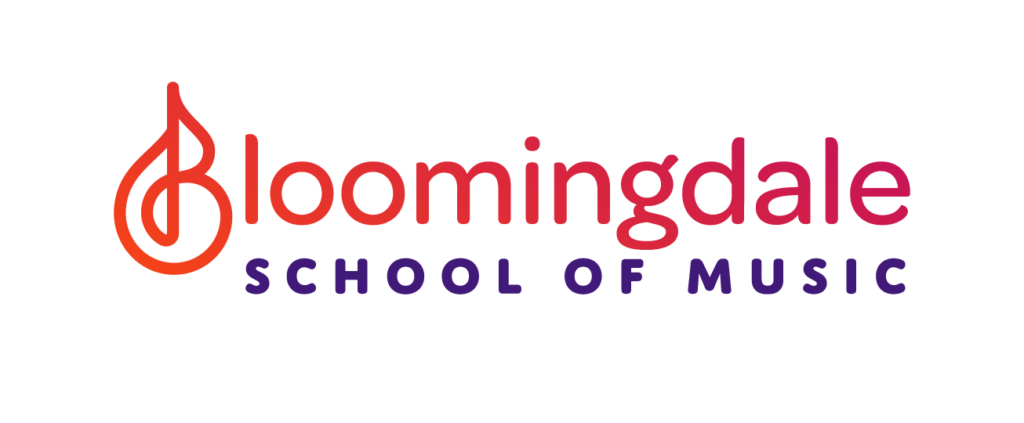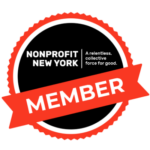Diversity, Equity, And Inclusion: A Collective Responsibility
In June 2020, the Bloomingdale School of Music (Bloomingdale)—like many communities around the world—paused in reaction to what was happening with the convergence of multiple pandemics and began to reflect on the organization’s growing edges.
Since 1964, the school’s mission has been to, “provide open access to high-quality music education to anyone who seeks it, regardless of economic status, ability level, ethnicity, or religious affiliation,” through affordable lessons and a robust financial aid program. However, over its nearly six decades, the community, city, and world around Bloomingdale changed; it was time to assess and address if they were meeting the needs of their diverse multicultural and socioeconomic community and create action steps to do so.
Staff and faculty members volunteered to form a Diversity Task Force to address the school’s opportunity to better serve its diverse population. When I joined the organization in the fall of 2020 as the first Executive Director of color, I expanded the Task Force to include additional key staff and faculty members. I also invited members of the Board of Directors, such as Jean Marie De Veaux, a woman of color who has been a Bloomingdale Board Member for almost 30 years. The group selected four areas of the organization to focus on: Programming, Professional Development, Human Resources & Operations, Outreach & Communications.
Centering Diversity, Equity, and Inclusion
In September 2021, Bloomingdale received funding from the Bay and Paul Foundation to focus on capacity building. I knew, coming into this work, that diversity, equity, and inclusion (DEI) had to become a codified part of the school’s culture to build a sustainable foundation. DEI work couldn’t just be something supplemental tacked on at the end and we had to start doing this work as a collective. It makes all the difference in the world when everyone is a part of the process. And then, DEI has to be a vital part of a strategic plan moving forward so that it is interwoven into the habits of the organization and becomes part of the culture. It would be critical for us to bring in outside facilitators to help move the conversation forward.
As a capacity builder, Creative Generation collaborates with individuals, teams, organizations, and collectives to co-create the sustainable capacities needed to achieve their objectives. From September 2021 to February 2022, Bloomingdale engaged the team at Creative Generation to facilitate and document the work of its Diversity Task Force. During this time, the committed group of individuals authored a set of recommendations to inform the development of the organization’s next strategic plan. Bloomingdale also partnered with Lorna Jane Norris of LJN Advisory to develop and execute the greater strategic planning effort through a community-wide collaborative effort to define the organization’s primary objectives and priorities over a series of large and small group sessions over six months.
“What worked well during our work with Creative Generation was the balance of participants (Bloomingdale stakeholders who contributed open, honest thoughts and ideas about their concerns). There were a variety of ideas and opinions expressed with openness, sincerity and respect. The recommendations Creative Generation made are relevant and achievable.”—Jean Marie De Veaux
Creative Generation facilitators oversaw an integrated series of convenings, which incorporated community-building, knowledge-sharing, and multi-modal pathways of engagement to elevate the most effective practices of diversity, equity, and inclusion in the arts and cultural/music education fields while honoring the deeply powerful expertise of the Task Force members. From this experience, the facilitators and documentarians at Creative Generation offered a set of observations and recommendations from the co-creation process within the Summary Findings section of the report, Report of Recommendations: From Bloomingdale School of Music’s Diversity Task Force. The five categories of observations included:
-
“What’s Going on?” focusing on transparent communication: The initial focus on transparent communication puts everyone on an equal playing field.
-
Honoring Both the Musician & the Person, focusing on holistic organizational and social systems: The second focus of the recommendations brought the whole of the organization into view—just like you cannot compartmentalize different pieces of a person when talking about teaching, you cannot focus on only parts of the organization when it comes to DEI work.
-
Lifelong Learning, focusing on the individual and collective growth of the Bloomingdale community: Many of the Bloomingdale Diversity Task Force members voiced an interest in expanding their knowledge; their eagerness and willingness to grow also demonstrated the potential of the school to evolve.
-
Knowing Your Backyard, focusing on engagement with the immediate community around Bloomingdale: Through the process, the group learned how valuable it is to interact with and collaborate with groups who reflect the diversity the organization is striving for (i.e., a variety of Bloomingdale staff/faculty who bring a unique perspective).
-
We’re Here Because of Students, focusing on student voice and agency: At the center of this DEI work is the heart of Bloomingdale: the students. It’s about uplifting their voices and making sure they have a say in the school’s direction. They must have autonomy, and Bloomingdale must operate in a way to support that.
These observations informed the 25 recommendations from the group that focused on general budget, professional education and learning, marketing and outreach, programming, and human resources and operations. Interestingly, I even stepped out of the conversation so people could talk freely and feel comfortable expressing themselves. I came back into the conversation after the recommendations were made and found that they echoed my goals for Bloomingdale.
Informing the Future
These recommendations, along with a contribution form completed by 89 participants (including staff, board, faculty, neighbors, students, funders, and former community members), informed the initial braining storming of ideas for the strategic plan, focusing on the question, “What do you want Bloomingdale to look like in 2027?” The desire for transparent communication drove the collaborative nature of the strategic planning process itself. It resulted in a set of pillars and five goals that integrate recommendations from the foundational work with Creative Generation.
Our vision plan, ROADMAP 2027, was approved by the board in June 2022 and lays the foundation for three pillars: EXPAND. ADAPT. INCLUDE. Bloomingdale plans to build on our work by expanding offerings and capacity and adapting our space, current programs, and ways of working to include more people.
As these three pillars uphold our work over the next five years, we focus on five main goals. By 2027, Bloomingdale will have:
-
Reach: Deepened its reach into the Upper West Side and expanded its borders physically and virtually to reach more diverse communities and populations.
-
Programs: Developed a cohesive and relevant continuum of programming that engages and accommodates diverse students and audiences of all ages and abilities in our space, in the spaces of partner organizations, and in the virtual space.
-
Capacity: Built and strengthened its resources and capacity to support and sustain the people who work at Bloomingdale and to ensure excellence in all its programs.
-
Space: Expanded access to its programs by improving and adapting its current space, and by sharing space with other mission aligned organizations.
-
Connection: Greater connectivity and openness, and more opportunities for collaboration between and across our community members, and an increased relationship with and presence in the community at large.
A Strong Vision
Because of this work, Bloomingdale has a stronger understanding of what is needed to intentionally embed diversity, equity, and inclusion into our culture. Now, we also have a strong vision plan to guide us.
As we launched our plan in Fall 2022, the team at Bloomingdale remained grateful for the chance to participate with individuals from outside of the school so that we could better understand our places in the organization and how our bias might affect others. By embedding the recommendations into our strategic goals, we are ensuring that the DEI work of the school does not become just the responsibility of a small group but every single one of us.
“As a board member, it brought me happiness to be able to openly share my thoughts during our discussions. André (the facilitator) always gave me – and everyone else – great respect. He made everyone feel that their opinions were valued, respected, and appreciated. The Final Report of Recommendations were excellently stated with sensitivity and accuracy of what all members of the task force stated during discussions.”—Jean Marie De Veaux
About the Authors
Erika Atkins is currently the Executive Director of the Bloomingdale School of Music, located on the Upper West Side of New York City. At a young age, Erika’s family instilled in her the importance of service, creativity, and growth through constant learning. Over the past decade, Erika has channeled those values into her career as an arts administrator, youth development professional, teaching artist, and performer in New York City and her native Washington D.C. area. Erika’s life-changing experiences growing up as a young artist propelled her to leadership roles within her community and attending George Mason University, where she obtained a B.A. in Music.
She has used her drive to connect and support people through her administrative work in arts education. Shortly after completing her M.S. in Arts Administration from Drexel University in 2015, Erika joined the staff of Opening Act (New York City Area) as the Director of Operations. She spent five years in multiple roles, including Teaching Artist, Interim Executive Director, and Deputy Director. Before Opening Act, she worked at The New Victory Theater (New York City) and Levine Music (Washington, D.C.). Through her work, she developed operations and support systems and taught as a teaching artist and workshop facilitator within the programs. This allowed Erika to dive into arts education from multiple perspectives and develop a 360° approach to her work.
Erika is currently a board member for the In[HEIR]itance Project and Newport Film. She has served on the Board of Directors for the American Alliance for Theater and Education, the Board Executive Committee of the NYC Arts in Education Roundtable, and the Arts Education Advisory Council of Americans for the Arts.
Jean Marie De Veaux is originally from Buffalo, New York. She has resided in the New York City metropolitan area since 1971 and received her Masters Degree in Education from Teachers College, Columbia University (1973). Jean Marie grew up with a deep love for all types of music (especially piano music). She enjoyed taking piano lessons during childhood and always loved hearing talented pianists from her church or neighborhood play the piano in her house.
While living on the Upper West Side (from 1971-1991), Jean Marie discovered the Bloomingdale School of Music in 1982 after seeing a flyer at Teachers College. She began to love attending and supporting concerts, programs and activities at the school over the years. Jean Marie has been on the Board of Directors since 1995 and serves on the Event Committee. She also took Piano Lessons with Marc Peloquin (BSM Resident Teaching Artist) in the late 1990’s (and hopes to return to piano study in the near future).
Jean Marie is a retired Teacher and Educator. She worked 32 years at The Children’s Aid Society, Foster Care Division (New York City) as Education Coordinator and Consultant prior to retirement. Jean Marie advocated for several foster care youth to study music at BSM and the school generously provided scholarship assistance to them.
By Erika Atkins, featuring Jean Marie De Veaux
*Originally featured on Creative Generation Blog


